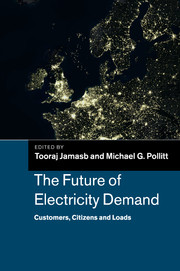Book contents
- Frontmatter
- Contents
- List of Figures
- List of Tables
- List of Boxes
- List of Contributors
- Foreword
- Preface
- Acknowledgements
- Introduction and overview of the chapters
- Part I The economics
- Part II Technology
- Part III Social dimensions
- 9 From citizen to consumer: energy policy and public attitudes in the UK
- 10 The local dimension of energy
- 11 Centralization, decentralization and the scales in between: what role might they play in the UK energy system?
- 12 Equity, fuel poverty and demand (maintaining affordability with sustainability and security of supply)
- 13 Energy spending and vulnerable households
- Part IV Policy and regulation
- Index
- References
10 - The local dimension of energy
from Part III - Social dimensions
Published online by Cambridge University Press: 05 March 2014
- Frontmatter
- Contents
- List of Figures
- List of Tables
- List of Boxes
- List of Contributors
- Foreword
- Preface
- Acknowledgements
- Introduction and overview of the chapters
- Part I The economics
- Part II Technology
- Part III Social dimensions
- 9 From citizen to consumer: energy policy and public attitudes in the UK
- 10 The local dimension of energy
- 11 Centralization, decentralization and the scales in between: what role might they play in the UK energy system?
- 12 Equity, fuel poverty and demand (maintaining affordability with sustainability and security of supply)
- 13 Energy spending and vulnerable households
- Part IV Policy and regulation
- Index
- References
Summary
Introduction
More than half of the world's population lives in urban centres and this is projected to reach two-thirds by the middle of this century (OECD 2009, p. 21). Cities alone consume about two-thirds of the world's total energy production and account for more than 70 per cent of global CO2 emissions through heating, transport and electricity use (IEA, 2008c, p. 179). Many urban centres are now making strides to mitigate greenhouse gas emissions (GHGs) and take control over energy consumption and generation. In this chapter, we postulate that some of the best opportunities for reducing energy demand and carbon emissions are through stronger involvement and leadership from local government. We show that local government can and does have a significant impact on both energy production and energy consumption and is an important participant for the implementation of distributed energy.
While the theory of free-riding goes some way to explain the difficulties in getting local governments to unilaterally cut carbon emissions, it neglects to account for many of the co-benefits of implementing such policies. For instance, the costs and the benefits of carbon mitigation are difficult to measure and thus introduce large uncertainty about the aggregate economic and welfare impacts different policies may have. Such uncertainty leads to inefficient decision making and to councils adopting a ‘wait and see’ policy rather than deriving direct benefit from more immediate implementation. While such a strategy may seem rational from a unilateral perspective, in aggregate it leads to inefficient outcomes where the majority of players choose to ‘wait and see’ rather than ‘acting now’. Councils which choose not to adopt carbon-mitigation strategies are therefore ‘free-riding’ and benefiting from the knowledge and implementation strategies created by other first movers. While free-riders adopting status quo policies derive some secondary benefits from first movers, we show that first movers who have self-imposed and targeted local energy strategies do indeed derive direct benefit from self-imposed implementation strategies. In addition, local governments which work with and include local business and residents in carbon-mitigation strategies have a larger impact and a greater probability of success. Not only are synergies created and direct benefits derived for the climate but these partnerships are often financially rewarding to local government, business and the residents who participate in them.
- Type
- Chapter
- Information
- The Future of Electricity DemandCustomers, Citizens and Loads, pp. 249 - 279Publisher: Cambridge University PressPrint publication year: 2011
References
- 5
- Cited by

